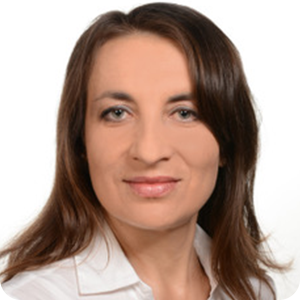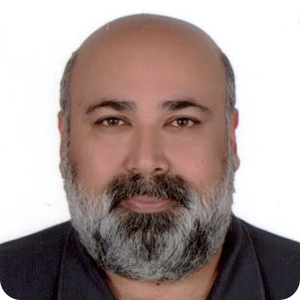Fear, uncertainty, and grief have become daily emotions for millions around the world since the launch of a full-scale invasion of Ukraine by neighbouring Russia. What no one thought would ever happen in the 21st century in Europe began on February 24th, 2022 and continues today with no signs of slowing down. Thousands of people have died and millions of Ukrainians have been uprooted from their homes due to violent attacks by the Russian army. Today, we mark one year from the start of the war and the question on everyone’s mind is whether an end to this nightmare is in sight in the nearest future? We asked some experts in conflicts and humanitarian work to share their opinions. Let’s see some of their thoughts below.
Key Takeaways:
- As estimated by the UN, Russia’s invasion of Ukraine has displaced 5.9 million people inside the country, and nearly 8 million people from Ukraine have fled to neighbouring countries.
- The UN’s latest estimate of civilians killed is more than 7,000, all though unofficial sources mention higher numbers. The number of military who have been killed or died during the war has risen to tens of thousands on both sides, with no exact numbers being made public.
- One of the biggest lessons learned by the international community has been a revaluation of collaboration with Russia, according to conflict experts.
- According to experts, there is no diplomatic solution for this war to end anytime soon.
DevelopmentAid: What has one year of Russian-Ukrainian war revealed in, and about the international community?

“The war in itself was probably an unpleasant surprise for the entire world. Then the international community has been surprised by the strength of the Ukrainian resistance against the Russian invasion and, despite a significant imbalance in weapon capacity, due to a strong spirit, the Ukrainian army and the ordinary population have resisted the invasion for already one year. Of course, in time Western weapons strengthened the position of the Ukrainian army who had already liberated some of the territories occupied by Russia. Some people from the international community just discovered Ukraine for themselves: its size, its features, and its culture. Many countries around the world have supported Ukrainian refugees and those who still remain in Ukraine but quite often the difference between the position of governments or politicians and the position of the people has been enormous. While people were ready for quick decisions and actions, governments were much slower or resisted some important changes. So, multiple demonstrations in support of Ukraine were organized in order to inspire or push the governments towards action. At the same time, Ukraine feels big gratitude to certain countries (like Poland, the Baltic countries, etc), celebrities, and individual politicians who help Ukrainians with all their heart. The international community started to question the global security and peace guarantee system which seems to be outdated and not functioning efficiently. Multiple international organizations such as the UN, the Red Cross, and others could not fully fulfil their tasks for the defence of civil population and war prisoners. This war demonstrated a huge breach of human rights (mass graves, sexual abuse, tortures, terrorising of the entire country population), however, the mechanism of human rights protection seems to be weak and not responding promptly.”

“The international community has worked together remarkably well to handle massive refugee flows and to coordinate humanitarian technical assistance to Ukraine. However, at the military level, American dominance in NATO has been reinforced. Washington has led the response to the war, marshaled allies, organized military aid to Ukraine, and contributed by far the largest amount of military equipment and intelligence support to Ukraine. It has decided at each step what kind of weapons Kyiv will receive and what it will not, demonstrating that the French proposal for European strategic autonomy exists only at the level of words. The international alliance for Ukraine will come under increasing strain because Putin is intent on sending hundreds of thousands of fresh troops to the front in the second year of the war.”

“Russia’s war of aggression has once again exposed a significant flaw in the international system, big states often have the impunity to violate international law. We have seen this from the United States’ invasion of Iraq, the use of torture, and drone strikes as well as China’s ongoing genocide against the Uyghurs. The war has shown that the international community values certain lives over others. Putin was able to invade Ukraine without other nations’ militaries coming to Ukraine’s aid. However, if Putin chose to cross into NATO territory, the United States, the United Kingdom, and many European Union countries would be required to act. We’ve also seen how European countries have made efforts to welcome Ukrainian refugees into their countries yet, it wasn’t that long ago that much of Europe was struggling to find ways to keep Syrian and African refugees from seeking refuge in their countries. There have also been debates about the Responsibility to Protect (R2P). Should the international community be compelled to protect Ukrainian citizens and ward off Russian aggression? Or, by not engaging in direct hostilities, is the international community saving more lives by avoiding World War III?”

“Support (financial and arms) has been mobilised quickly and will be sustained by the West because of the threat posed to European countries on the border with Russia. Russia, through various interventions, felt confident in invading Ukraine because it has successfully, and systematically, caused dissent and the undermining of ‘western’ alliances (NATO through Trump, the EU through e.g., Brexit) but this has led to a firming up of these alliances, and greater calls by ‘vulnerable’ countries to join these groups. This conflict has been the main focus of many governments and almost all news media in 2022 – with little attention paid to finding solutions to other serious, long-term conflicts that continue all over the world – which reveals a lot about the mindset of the international community – and particularly of richer nations. The amount of aid and support Ukraine is being provided with and how the Ukrainian refugees are being viewed and treated is completely different from the way the Somali, Yemeni, Ethiopian, and many other refugees are treated and seen. Ukraine needs international aid and the Ukrainian refugees must be provided with assistance but there needs to be some level of equity on how one group of refugees are treated and viewed compared to another group.
DevelopmentAid: What are the three biggest consequences of this war, particularly for Europe, but also for the rest of the world?

“Perhaps the biggest consequence or result of this war is a revelation. People understood that a full-scale, such a big war, was possible in an area very close to highly developed European states. A part of this war is the global nuclear threat as well as the food security threat. Such a war cannot leave the rest of the world remaining neutral or not being involved in one way or another, both at government and personal levels. European countries needed to provide significant finance to shelter Ukrainian refugees and also restructure their energy net supply to shift away from the dominance of Russian gas and oil. Does this lead to a visible financial and energy crisis in Europe? Living in the middle of Europe, I don’t see a real crisis here unlike it is in Ukraine, for example. After this war, the world will not be the same. This war has triggered multiple restructuring at the level of international organizations, governments, political preferences, media, and human values.”

“The first big consequence of the war has been the return of full-scale military operations to Europe for the first time since the Second World War, with Russia’s war of aggression killing or severely injuring approximately two hundred thousand people. The second consequence has been the flow of over seven million refugees out of Ukraine, and this has put a strain on the major European host countries. The third consequence has been to create an energy crisis, in that energy sources have been restructured. When it came to reducing dependence on Russian energy imports, Europeans took a big economic hit, quickly built liquified natural gas terminals, overrode regulations, imposed sanctions, and agreed to a price cap on Russian oil.”

“One of the biggest consequences is the mass displacement of Ukrainians. It is now almost one year into the war and there are already eight million Ukrainian refugees and another six million who are internally displaced in Ukraine. Forced displacement averages 20 years for refugees and 10 for IDPs. With the destruction that Russia is causing in Ukraine, it will take decades and billions of dollars in international aid to fully recover. Many of those who have been forcibly displaced will likely not return for many years, if ever. In the meantime, many Ukrainians will struggle to adapt to new countries with limited opportunities. We still don’t know how this war will end, and there are a lot of unknowns that could result in major consequences. How long will the war last? This could have major implications for international aid efforts as well as the secondary and tertiary effects of limited grain, oil, and natural gas trade on the rest of the world. Will Ukraine be forced to give up some of its territory? If Ukraine wins, will NATO allow Ukraine to join? If so, does that protect Ukraine from future Russian aggression or does it start another war?”

“Russia’s invasion has been condemned by most countries – but not China and India – both of which remain quiet because of their expansionist ambitions (e.g., China’s desire to annex Taiwan). China is watching things very carefully now that Xi Jinping has been confirmed to be in power for life (as Putin) to see how countries respond to the conflict, and this will influence its decision about how/when to take steps for Taiwan. For the rest of the world, the ambitions of the UN Sustainable Development Goals and the pledges to meet these by 2030 risk falling off the agenda and targets not being met. And the biggest existential threat to all of us, climate change, becomes increasingly so – at a time when all countries around the world should be pulling together.
DevelopmentAid: What are the three biggest lessons the international community has learned from Russia’s invasion of Ukraine?

“I think and I hope that the international community learned the “lesson” about Russia – its values as a state, its intentions – and subsequently re-evaluated collaboration with this country (by installing sanctions). I also hope that the international community learned the lesson about the balance between human-oriented priorities and profit-oriented priorities. The extent of harm to people caused by this war, which could have been prevented, shows that human life and human rights are not the highest priority and are still compromised with other interests. It was probably not different during previous wars but the war in Ukraine has highlighted it in a more noticeable way. This war also raised the importance of international collaboration and efficient union and this will continue not only for the purpose of reaching peace in Ukraine but far beyond: for reconstruction, re-building, food security, establishing an efficient world security system for all.”

“The first big lesson is that Russia cannot be counted on as a source of oil and gas, as Europe (especially Germany) had become increasingly dependent on this one source. The second big lesson is that Russia under Putin believes it will conquer Ukraine, and will not compromise on this objective until its army is pushed back to the border. Thirdly, states headed by dictators (such as Russia) often do not negotiate in good faith with democracies because they see themselves as unconstrained by international law and tend to believe they can manipulate public opinion in the West.”

“I am not sure the international community has learned any clear lessons from Russia’s invasion of Ukraine. I would hope that the international community has learned that Vladimir Putin cannot be appeased and is clearly a threat to international peace. Depending on how long this war goes on, how many are forced to suffer, and how much money governments spend on the war, the international community may look back and wish it had taken more decisive action against Russia sooner. The challenge with counterfactual arguments is that it is impossible to know if different actions would have yielded a more positive result.”

“World leaders thought that they could appease Putin – that he was someone they could do business with – but this is something that has been building up over many years. Russian citizens believe Putin’s narrative about re-claiming territory because of the lack of free press and the imprisonment of dissenters (as in China and other repressive states). As populist leaders and governments have gained power, this has led to the denigration of experience and diplomacy (kick out the experts, the elite, and the political class) honed at government/civil service levels over so many years and replace this with chaos (lies and soundbites).
DevelopmentAid: Is there a diplomatic/political solution to this war?

“During the very first days of the war at one of the demonstrations, one Ukrainian girl was holding a banner: “When Russia stops fighting – there will be no war, when Ukraine stops fighting – there will be no Ukraine”. Later these words were picked up by Boris Johnson, the former Prime Minister of the United Kingdom. Ukrainians are simply defending their land and preventing Russian troops from capturing more of its territory. In the occupied territories, the Ukrainian population is victim to genocide (mentioned mass graves, sexual abuse, tortures, etc, which are all now being recorded by the police and prosecution from several countries). Everybody (especially Ukrainians) wants their peaceful life back but to achieve this, Russian troops need to leave the territory of Ukraine and Russia needs to stop shelling Ukrainian cities and villages every day. Has Ukraine tried to negotiate with Russia? Of course, it has, since the very first day of the invasion but the Russian delegation was never really constructive in accepting these terms and reversing the on-the-ground action. When the leaders of some countries proclaimed that Ukraine should negotiate with Russia or, more precisely, Ukrainian President Zelensky should negotiate with Russian President Putin, Zelensky offered an option of publicly open negotiations so that everybody could see the approach of the sides. This offer was not supported by other leaders. Despite all the suffering endured during the last year by the Ukrainian nation, the country cannot “reach” peace by giving away the currently occupied territories simply because genocide will continue on those territories and the new massive invasion will be repeated by Russia again (as already happened within a war dynamic from 2014 to 2022). Ukraine needs to liberate all its territories, get justice (war crimes recognition), and loss reparations. This is a part of the peace plan by Vladimir Zelensky which was announced on multiple global platforms and accepted by major international unions and leaders.”

“I do not see a diplomatic/political solution at this point, because the Russians insist that the Ukrainian government is illegitimate and that the West must recognize their annexation of Luhansk and Donetsk. However, if the Russians are pushed back toward their border in the coming months, they will probably seek to negotiate by trying to hold onto Crimea while renouncing their claim to the rest of Ukraine. The Russians are waiting for the U.S. to open peace negotiations with them, and the United States will not do that until the military situation decisively favours Ukraine.”

“As it stands, I do not believe there is a palatable political solution. Putin has shown that he is willing to go to extremes for this war. He has come too far to back down now. In a world where Putin is no longer Russia’s president, there may be more room for a negotiated settlement or, if the Russian people rise up against Putin and he feels pressured to make a change. However, both of those scenarios are unlikely in the near term. Unfortunately, it is much more likely that the Russian-Ukrainian war will become a protracted conflict with no clear end in sight.”

“If the war grinds on and there are many thousands of Russian casualties, Putin could be taken down or out by his own people/government/army but, because of the extent of nationalism in Russia, he could just be replaced by others with a similar narrative but who might be more open to negotiate with. Russia’s pulling back needs to be incentivized and he will need to be able to step back without losing face among his people. Could Ukraine cede some of its territory in the Donbas, giving Russia what it wants (access to the Black Sea)? Possibly a solution for both parties – but this would need an extensive period of diplomacy and China would need to take an active role. China is also one of the countries that will be instrumental in helping the world to reduce emissions and prevent global warming through technological advancements and by reducing its own pollution (India too). The diplomatic and political solution will need to focus on the financial benefits to Russia and China of taking a leadership role as the innovators in fighting climate change but this is a very, very long way off.”
See also: Will donors’ aid disbursements to Ukraine increase or drop in 2023? | Experts’ Opinions
Worldwide organizations and donors have joined forces to support the refugee crisis in the countries where millions of Ukrainians have found shelter. By becoming DevelopmentAid Professional Plus members, experts can check the Donors menu and Organizations section and directly reach those that are relevant to his/her expertise. In addition, check out more than 200 job opportunities in the international development sector available in Ukraine here.

